Implementation, Consulting, Auditing & Certification at one place . We focus on taking your business to new heights.
Obtaining SA 8000 Certification in Ghana demonstrates an organization’s commitment to promoting ethical and fair working conditions and can help improve its reputation and credibility with customers, employees, and other stakeholders
SA 8000 is a certification standard for social accountability developed by Social Accountability International (SAI). The SA 8000 standard is based on international human rights standards and covers areas such as child labour, forced labour, health and safety, freedom of association, discrimination, disciplinary practices, and working hours.
Organizations seeking SA 8000 Certification in Ghana must undergo a social audit, which involves a third-party assessment of their social accountability management systems and practices. The audit process includes a review of documentation, interviews with workers and management, and an on-site inspection of facilities.
To obtain SA 8000 Certification in Ghana, you can follow these general steps:
It’s important to note that SA 8000 Certification in Ghana is voluntary and there is no legal requirement to obtain it. However, it can be a valuable tool for demonstrating your commitment to social accountability and improving your organization’s reputation and competitiveness.
Obtaining SA 8000 certification can bring several benefits to an organization, including:
Overall, SA 8000 Certification in Ghana can benefit organizations by promoting ethical and responsible business practices, improving working conditions and employee engagement, enhancing reputation and access to new markets, and improving supply chain management.
The SA 8000 standard sets out a number of requirements that organizations must meet to obtain certification. These requirements cover the following areas:
Organizations seeking SA 8000 certification must undergo a social audit to assess their compliance with these requirements, and must demonstrate ongoing compliance through periodic surveillance audits.
SA 8000 certification in Ghana is not mandatory, and any organization can choose to implement SA 8000 to improve their social accountability and demonstrate their commitment to ethical business practices. However, SA 8000 certification may be particularly relevant for organizations that:
In summary, SA 8000 certification in Ghana is relevant for any organization that wishes to improve its social accountability and demonstrate its commitment to ethical business practices, particularly those operating in industries with high labour risks or complex supply chains.
The cost of SA 8000 certification in Ghana can vary depending on several factors, such as the size and complexity of the organization, the number of sites that need to be certified, the scope of the certification, and the certification body selected to conduct the audit.
The certification cost typically includes the following components:
It is important to note that SA 8000 certification cost in Ghana can be significant, and organizations should carefully evaluate the benefits and costs of certification before deciding to pursue it. However, the benefits of SA 8000 certification, such as improved working conditions, enhanced reputation, and increased stakeholder trust, can outweigh the costs over the long term.
The Purpose of SA 8000 certification gives several benefits for organizations, such as:
Overall, SA 8000 certification in Ghana can help organizations improve their social accountability and contribute to a more sustainable and just world.
Roles and responsibilities of SA 8000 Consultants in Ghana?
SA 8000 consultants in Ghana are professionals who provide expert guidance and support to organizations seeking to obtain SA 8000 certification Ghana. Their roles and responsibilities can include the following:
Overall, the roles and responsibilities of SA 8000 consultants are to provide expert guidance and support to organizations seeking to implement socially responsible business practices and obtain SA 8000 certification, and to promote a culture of social accountability and responsible business conduct.
Process of SA 8000 Audit in Ghana?
The SA 8000 audit is a process used to assess a company’s compliance with the requirements of the SA 8000 standard, which is an international standard for social accountability in the workplace. The SA 8000 standard is based on international human rights norms and covers various aspects of worker rights, including child labor, forced labor, health and safety, freedom of association, and working hours.
Here is an overview of the process involved in conducting an SA 8000 audit in Ghana:
It’s important to note that the specific details of the SA 8000 audit process in Ghana may vary depending on the audit firm and the company being audited. The process outlined above provides a general overview of the key steps involved in conducting an SA 8000 audit in Ghana.
To obtain SA 8000 certification in Ghana, which is a recognition that a company meets the requirements of the SA 8000 standard for social accountability in the workplace, you need to follow these general steps:
It’s important to note that the specific steps and requirements for SA 8000 certification may vary depending on the certification body and the industry sector. It’s advisable to consult with the chosen certification body and seek professional assistance if needed to ensure a smooth certification process.
The SA 8000 Certification represents efficient and effective management for carrying out the organization’s job. It helped the organization’s corporate governance processes. The SA 8000 Certification improved the organization’s supply chain performance and control.
The Cost of SA 8000 certification in Ghana varies depending on factors such as the size of the organization, the complexity of its systems, and the chosen certification body.
The SA 8000 standard applies to all businesses, regardless of industry, that strive to continuously improve working conditions and convey this to all relevant stakeholders and interested parties by addressing labour issues with subcontractors.
In order to obtain SA 8000 Certification in Ghana, an organization must develop and maintain policies, practices, and documentation that show it complies with the Trust Services Criteria (TSC).
We provide SA 8000 certification, however in order to get it you often need to choose a SA 8000 certifying agency, fill out an application, supply supporting materials, go through an inspection, and get the certifying agency’s approval and certification.
When selecting a SA 8000 consultant in Ghana, it’s important to evaluate their qualifications and experience, as well as their approach to the SA 8000 compliance process in Ghana.





















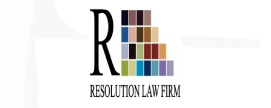

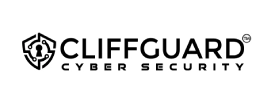
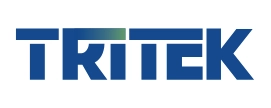
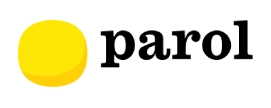
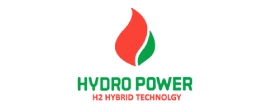

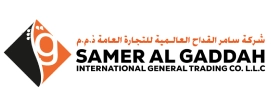

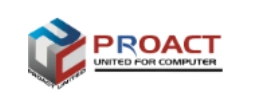
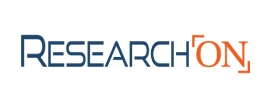
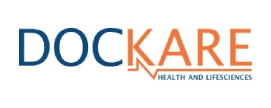
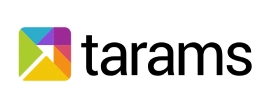
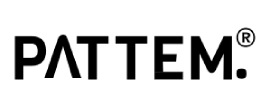

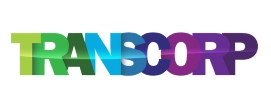
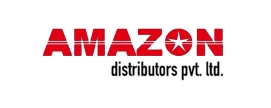
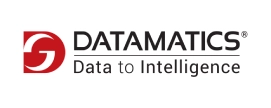
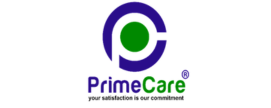










B2BCERT is a Solutions & Service organization, specialized in management consulting, Trainings, Assessments, Certification & Managed Services
MOST SEARCHED ON B2BCERT: ISO 9001 Certification | CE Certification | ISO 22000 Certification | NEMA Certification | ISO 27701 Certification | ISO 27032 Certification | ISO 22483 Certification | REACH Certification | ISO 22301 Certification | ISO 42001 Certification | ISO 41001 Certification | ISO 21001 Certification | ISO 15189 Certification | GMP Certification | GDPR Certification | GDP Certification | GLP Certification | HIPAA Certification | PCI DSS Certification | SOC 1 Certification | KOSHER Certification | NEMA Certification | Certificate of Conformity | GACP Certification | FSSC 22000 Certification | OHSAS 18001 Certification | HACCP Certification | SA 8000 Certification | SOC 2 Certification | VAPT Certification | ROHS Certification | BIFMA Certification | FCC Certification | HALAL Certification
ISO CERTIFICATIONS: ISO 9001 Certification | ISO 14001 Certification | ISO 45001 Certification | ISO 22000 Certification | ISO 27001 Certification | ISO 13485 Certification | ISO 17025 Certification | ISO 27701 Certification | ISO 20000-1 Certification | ISO 27032 Certification | ISO 22483 Certification | ISO 26000 Certification | ISO 22301 Certification | ISO 42001 Certification | ISO 27017 Certification | ISO 27018 Certification | ISO 50001 Certification | ISO 27014 Certification | ISO 29990 Certification | ISO 37001 Certification | ISO 41001 Certification | ISO 21001 Certification | ISO 55001 Certification | ISO 28000 Certification | ISO 22716 Certification | ISO 15189 Certification | ISO 41001 Certification
PRODUCT CERTIFICATIONS: FSSC 22000 Certification | OHSAS 18001 Certification | HACCP Certification | SA 8000 Certification | GMP Certification | GDPR Certification | GDP Certification | GLP Certification | HIPAA Certification | PCI DSS Certification | SOC 1 Certification | SOC 2 Certification | VAPT Certification | CE Certification | ROHS Certification | BIFMA Certification | FCC Certification | HALAL Certification | KOSHER Certification | NEMA Certification | REACH Certification | Certificate of Conformity | GHP Certification | Free Sale Certification | FDA Certification | GACP Certification
WHAT IS B2BCERT: B2BCERT is one of the leading service providers for International recognized standards and Management solutions for Business development, process Improvement, Consulting & Certification services for various International Standards like ISO 9001, ISO 14001, ISO 45001, ISO 22000, ISO 27001, ISO 20000, CE Marking, HACCP & many more. B2BCERT works on the values of trust, fairness & genuine respect for our customers, employees, and business partners.B2BCERT provides internationally recognized standards and management solutions, specializing in ISO and related certification services. Headquartered in Bangalore, India, we have a global presence in the Middle East and Africa. Our team of 30+ professionals ensures tailored solutions by partnering with leading certification firms.
B2BCERT Serves In: India | Nepal | Singapore | Afghanistan | Philippines | Malaysia | Jordan | Turkey | Sri Lanka | Saudi Arabia | Oman | UAE | Kuwait | Yemen | Qatar | Lebanon | Iran | Iraq | Bahrain | South Africa | Egypt | Nigeria | Kenya | Ghana | Tanzania | Zimbabwe | Cameroon | Uganda | USA | UK | Germany | Australia | New Zealand | Canada | Italy | Botswana | Brunei | Cambodia |
Service providing Sectors: Information Security | Manufacturing | Software Companies | Pharmaceuticals | Architecture | Construction | Food & Beverages | News & media | Science & Biotechnology | Electronics Industry | Telecommunications | Hospitals | Import & Export Businesses | Schools & Colleges | Textile Industries | Banks | Aerospace Manufacturing | Hotels & Restaurants | Organic Products | Mining & Renewable Business | Real Estate Business | Public Administration | Wholesale Trade | Supply Chain Management | Agrochemicals | Government Services | Electricity | Regulatory Agencies | Fitness and Wellness | Property Management | Rental Services | Warehousing | Delivery Services | Stores and Shops | IT Support | Event Planning | Consulting | Financial Advisory |
WHY B2BCERT: 1. Expertise Across Standards: B2BCERT is a leader in providing comprehensive solutions for a wide range of international standards, including ISO 9001, ISO 14001, ISO 45001, ISO 22000, ISO 27001, ISO 20000, CE Marking, and HACCP. Our deep knowledge ensures that your business meets and exceeds industry benchmarks with confidence. 2. Tailored Solutions: We understand that every organization is unique. B2BCERT offers customized consulting and certification services designed to fit your specific needs and objectives. Our team works closely with you to develop strategies that enhance your business processes and meet regulatory requirements.3. Global Presence: With headquarters in Bangalore, India, and a strong foothold in the Middle East and Africa, B2BCERT combines local expertise with a global perspective. Our international reach allows us to provide consistent, high-quality service wherever you operate.4. Trusted Partners: We collaborate with leading certification firms to offer you the best possible service. Our established relationships with top certification bodies ensure that you receive credible and widely recognized certifications that enhance your business’s reputation.5. Commitment to Values: At B2BCERT, our core values of trust, fairness, and respect drive everything we do. We are dedicated to building lasting relationships based on integrity and genuine respect for our clients, employees, and partners.6. Professional Team: Our team of over 30 skilled professionals brings a wealth of experience and dedication to every project. We are committed to delivering excellence and supporting you through every step of your certification journey.7. Comprehensive Support: From initial consultation to certification and beyond, B2BCERT provides end-to-end support. We are here to guide you through the complexities of compliance and help you achieve your business goals efficiently and effectively.